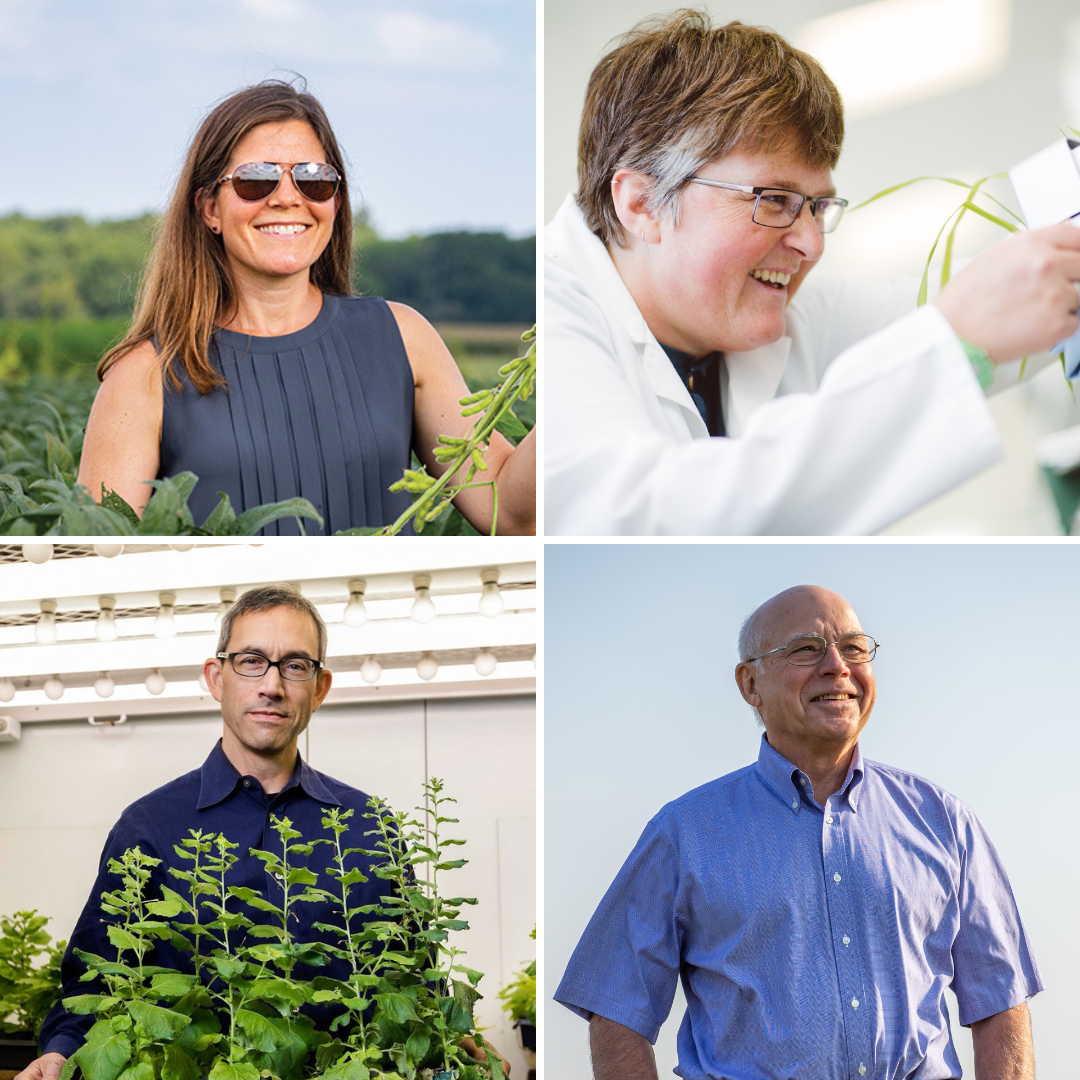Four RIPE researchers recognized on 2022 ‘Highly Cited’ list

CHAMPAIGN, Ill. — This year, four RIPE members were amongst 6,938 researchers around the world recognized by Clarivate as Highly Cited Researchers. According to Clarivate, Highly Cited Researchers have demonstrated significant and broad influence reflected in their publication of multiple highly cited papers over the last decade, ranking in the top 1% by citations for a field or fields and publication year in the Web of Science. Of the world’s population of scientists and social scientists, Highly Cited Researchers are 1 in 1,000.
RIPE, which is led by the University of Illinois, is engineering crops to be more productive by improving photosynthesis, the natural process all plants use to convert sunlight into energy, and ultimately yield. The RIPE project is supported by the Bill & Melinda Gates Foundation, Foundation for Food and Agriculture Research, and U.K. Foreign, Commonwealth & Development Office.
This year, RIPE’s Deputy Directors Lisa Ainsworth (USDA-ARS, University of Illinois) and Donald Ort (University of Illinois), as well as plant physiologist Professor Tracy Lawson (University of Essex), and Executive Committee Member Krishna Niyogi (University of California, Berkeley) were named Highly Cited Researchers.
Ainsworth is a Research Plant Physiologist for the U.S. Department of Agriculture, Agricultural Research Service (USDA-ARS) and adjunct professor of plant biology and crop sciences at the University of Illinois Urbana-Champaign. Lisa’s research applies physiological, biochemical, and genomic tools to understand the mechanisms of plant responses to global climate change. In 2019, Ainsworth was honored with the 2019 National Academy of Sciences (NAS) Prize in Food and Agriculture Sciences and was elected to the NAS in 2020. In 2021, she was named the USDA-ARS’ Distinguished Senior Research Scientist of the Year.
Ort is the Robert Emerson Professor of Plant Biology and Crop Sciences at Illinois. His research focuses on improving photosynthesis and addresses crop responses to global change factors, including increases in atmospheric carbon dioxide, and temperature. He leads the Genomic Ecology of Global Change theme at the IGB, is the director of research and development for the Center for Advanced Bioenergy & Bioproducts Innovation (CABBI), and was elected to the National Academy of Sciences in 2017. He has made the list every year since 2016.
Lawson, who is a professor of plant biology and Director of the Essex Plant Innovation Centre at the University of Essex, is among 579 researchers from the United Kingdom to make it on the 2022 list. Her research focuses on photosynthesis, stomatal behavior, and water-use efficiency at the leaf and whole plant level. Her team’s ultimate goal is to understand the impact that the changing environment has on these processes, and how to modify plants to grow more efficiently to feed the world.
Niyogi is the Associate Chair of the Department of Plant and Microbial Biology at the University of California, Berkeley, and a faculty scientist in the Molecular Biophysics and Integrated Bioimaging Division at Lawrence Berkeley National Laboratory. Throughout his career, he has been awarded the Howard Hughes Award, the Charles Albert Schull Award from the American Society of Plant Biologists, and the Melvin Calvin Award from the International Society of Photosynthesis Research, and was elected to the NAS in 2016. His research focuses on genetic approaches to the regulation of photosynthesis and photoprotection.
The full list of 2022 Highly Cited Researchers can be found here.
